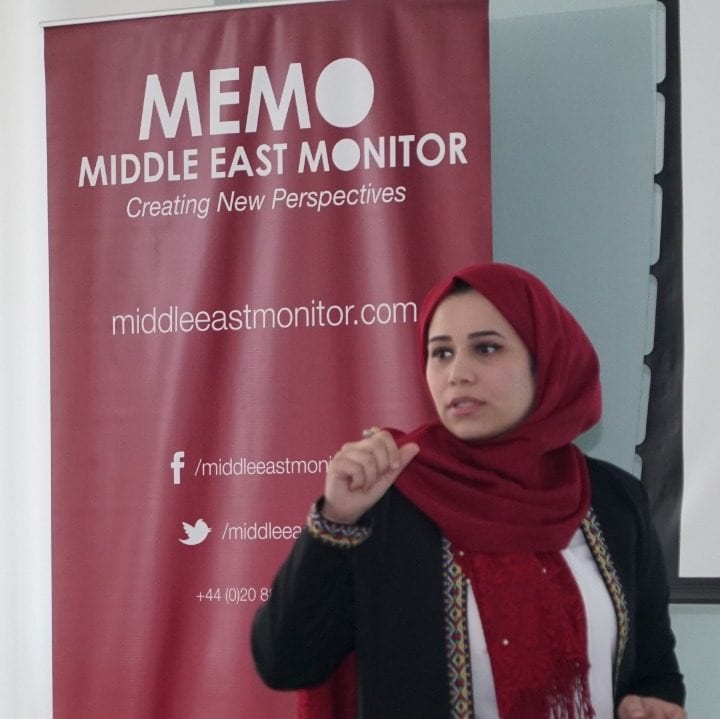As Argentina prepares for its 22 October presidential election, far-right candidate Javier Milei, who won the largest share of votes in the presidential primary elections, has made it clear that one of the first steps he will take should he win will be to move the country’s embassy in Israel from Tel Aviv to Jerusalem.
“Javier Milei said that his two great allies are the United States and Israel. If elected, he has vowed to move the Argentine embassy from Tel Aviv to Jerusalem,” La Nacion newspaper said. Milei has said his first wish, after winning the elections, is to “travel to Jerusalem to delve deeper into his studies of the Torah, Talmud and other Jewish scriptures.”
Milei, a Donald Trump-like character, has previously said: “When the one ordered Moses to break the first tables of the law, the first word he uttered was Jerusalem, and that was where King David established the capital, therefore we must take the embassy from Tel Aviv to Jerusalem.”
OPINION: Moving the Paraguay embassy to Jerusalem will be a wake-up call for Palestine
According to La Nacion, Milei would “reverse the decades of balanced Argentinian foreign policy towards the Israeli-Palestinian conflict and could jeopardise the country’s relationship with the rest of the Arab and Muslim world.”
“He truly ignores the international reality regarding one of the most sensitive and thorny issues in the Middle East, in which the status of the holy city must be resolved through negotiation,” the paper added
Last month, Israel’s Foreign Minister Eli Cohen announced during his last trip to South America that Paraguay will relocate its embassy from Tel Aviv to Jerusalem by the end of the year. The announcement came hours after Paraguayan President, Santiago Pena, was officially inaugurated at a ceremony in the capital.
![Paraguayan president Santiago Peña (R) and Israel's Minister of Foreign Affairs Eli Cohen (L). [@elicoh1/Twitter]](https://i0.wp.com/www.middleeastmonitor.com/wp-content/uploads/2023/09/F3osa8HXYAMxsss.jpeg?resize=802%2C900&ssl=1)
Paraguayan president Santiago Peña (R) and Israel’s Minister of Foreign Affairs Eli Cohen (L). [@elicoh1/Twitter]
“This is a correct and courageous decision, which testifies to the depth of the ties between the countries, and will strengthen the international status of Jerusalem as our eternal capital,” he added.
“We will continue and strengthen the important historical connection with the countries of Latin America, which have long stood by the State of Israel and the Jewish people.”
READ: Israel signs biggest defence deal with Germany
Paraguay, a country of around seven million people located between Brazil and Argentina, is one of the poorest countries in South America. Despite its lack of political weight in world affairs, it is a member of the UN General Assembly where its voice can serve Israel’s interests.
Latin America affairs specialist Ali Farhat told MEMO that moving the Paraguayan embassy from Tel Aviv to Jerusalem proves the establishment of advanced relations with Israeli.
Farhat added that Latin American countries are racing to move their embassies to Jerusalem because “there is a process of pressure from political movements in Paraguay, specifically within the right-wing ruling party to which President Pena belongs.”
“Moving the embassy is not in the interest of this country and is not a priority in light of the major crises that Latin American countries are experiencing,” he added. “Brazil has tried such a thing through the announcement of its former President Bolsonaro without achieving any successes in this matter.”
OPINION: At UN, Latin America’s presidents call for establishing a free Palestine
The views expressed in this article belong to the author and do not necessarily reflect the editorial policy of Middle East Monitor.

![Argentine economist and politician Javier Milei [@eduardomenoni/Twitter]](https://i0.wp.com/www.middleeastmonitor.com/wp-content/uploads/2023/09/F63-BdsWsAAPLLV-1-1.jpeg?fit=920%2C613&ssl=1)







